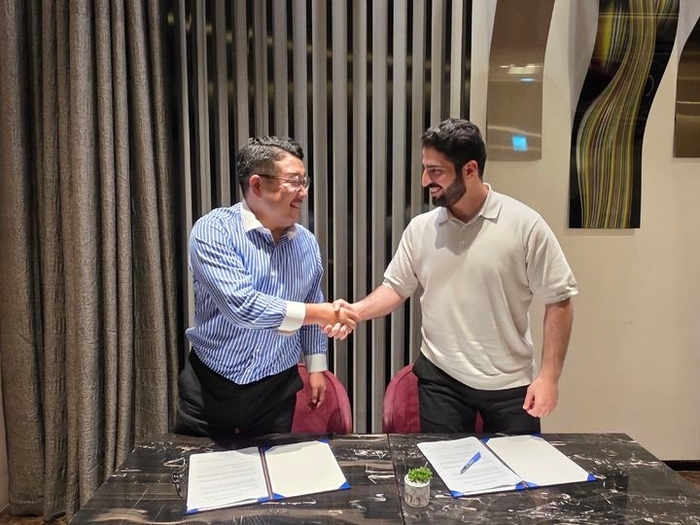Generation

Urban Oilfield Expands Waste-to-Oil Tech to Middle East and Oceania

Urban Oilfield, an eco-friendly renewable oil manufacturer, announced on the 12th that it will enter the Middle East, Australia, and New Zealand of Saudi Arabia, the UAE, following the UK, Finland, and the United States. Ahead of the establishment of its first commercial plant in November, it is accelerating its global expansion.
Urban Oilfield announced on the 11th that it signed a "business agreement for the introduction of Regenerated Green Oil (RGO) technology in Saudi Arabia, the UAE, Australia, and New Zealand" at its headquarters in Sangam-dong, Seoul on the 10th.
RGO technology refers to a technology that decomposes waste plastics and waste vinyl at low temperatures through wave energy generated from ceramic balls developed by urban oil fields and returns them to oil, which was a raw material.
It was certified by the Ministry of Trade, Industry and Energy (NET) in 2021 and is a renewable energy utilization technology that minimizes the generation of pollutants by not burning them, not traditional thermal decomposition.
Through this agreement, urban oil fields will grant Fedco exclusive rights to Saudi Arabia, the UAE, Australia, and New Zealand to restore renewable oil (renewable fuel oil) through eco-friendly waste vinyl and waste plastic decomposition treatment.
Founded in 1991, Fedco is a company that focuses on special power and energy projects throughout Saudi Arabia in cooperation with major Middle Eastern companies such as Saudi Aramco and the UAE's ADNOC. As a result, urban oil fields will be able to enter the Middle East market, where waste disposal problems are growing, through cooperation with Fedco.
In particular, on the 9th, "Wavejeong-eup," the first commercialization plant of the urban oil field, received attention from the industry by visiting the site along with Abdulmohsen Alzamil, CEO of Pedkosa, and CEO of Australia's largest textile manufacturing and supply company.
Currently, Wave Jeongeup, which introduced a new Korean technology application product of urban oil fields that decomposes waste vinyl and waste plastics in an eco-friendly way to restore them to renewable oil, is being commissioned after construction is completed.
"Pedco introduced urban oil fields to global textile manufacturing and supplying various textile products, including bedding, towels, tablecloths, and medical fibers. Through this, we visited the Wave Jeongeup site to minimize pollutant emissions through eco-friendly technologies owned by urban oil fields, rather than incineration," the city oil field said.
Unlike the existing pyrolysis oil production plant that produces heavy oil by burning it at high temperatures, urban oilfield facilities are characterized by high restoration rates that produce high-quality naphtha-level renewable raw materials, said Abdulmosen, CEO of Aljamil Pedko. "Regardless of economic feasibility, we believe that these technologies will present the direction of sustainable eco-friendly future technologies to the global community suffering from environmental destruction and create added value."
Chung Young-hoon, CEO of Urban Oilfield, also said, "Starting with the completion of Wavejeong-eup, the world's first commercialization plant made with urban genetic technology in November, we will raise Korea's status as a source technology for Korea in the eco-friendly high-tech industry within a year or two."












